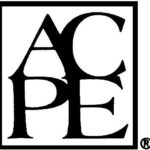

Program Overview
APhA’s Delivering Medication Therapy Management Services Certificate Training Program presents a systematic approach for developing, implementing, delivering, and sustaining MTM services.
It includes an overview of the marketplace for delivering MTM services, guidance for implementing MTM services in pharmacy practice, a review of the essential skills and knowledge needed for performing MTM successfully, and an organized process for identifying medication-related problems. The purpose of this certificate training program is to prepare pharmacists to improve medication use through the delivery of MTM services in a variety of practice settings.
How It Works
This program is conducted in three parts:
1) Online interactive self-study with assessment
2) Live Training Seminar with online evaluation
3) Post-seminar case exercises
- A Certificate of Achievement is awarded to participants who successfully complete all activity requirements:
- Successful completion of the self-study component involves passing the self-study assessment with a grade of 70% or higher.
- Successful completion of the live seminar component involves attending the full live seminar and completing the online evaluation.
- Successful completion of the post seminar case exercise components involves completing 3 post cases and submitting an online attestation statement of completion.
Continuing Education
Continuing Education
Successful completion of the entire program will result in 21 contact hours of CPE credit (2.10 CEUs).
Successful completion of the self-study component involves passing the self-study assessment with a grade of 70% or higher and will result in 10 contact hours of CPE credit (1.0 CEUs). 0202-0000-21-224-H04-P
Successful completion of the live seminar component involves attending the full live seminar and completing the online evaluation. Successful completion of this component will result in 8 contact hours of CPE credit (0.8 CEU). 0202-0000-21-225-L04-P and 0202-9999-21-225-L04-P
Successful completion of the post seminar case exercise component involves completing 3 post cases and submitting an online attestation statement of completion. Successful completion of this component will result in 3 contact hours of CPE credit (0.3 CEU). 0202-0000-21-226-H04-P
Once credit is claimed, Statements of Credit will be available online within 24 hours on participant’s CPE Monitor profile at www.nabp.net. The Certificate of Achievement will be available online upon successful completion of the necessary activity requirements on the participant’s “My Training” page on www.pharmacist.com.
Accreditation
APhA’s Pharmacy-Based Delivering Medication Therapy Management Services was developed by the American Pharmacists Association.
The American Pharmacists Association is accredited by the Accreditation Council for Pharmacy Education as providers of continuing education.


Course Information
-
Advance public health and patient care through improved medication use
-
Provide training to enhance pharmacists’ ability to effectively provide MTM services
-
Motivate increased numbers of pharmacists to establish MTM services
-
Communicate benchmark practices for providing MTM services
- Conduct a thorough medication therapy review (MTR)
- When interviewing a patient, employ effective communication skills to overcome communication barriers
- Complete a personal medication record (PMR)
- Develop a medication-related action plan (MAP)
- Document medication therapy management (MTM) services in a manner that allows for evaluating patient progress, billing, and tracking clinical and financial outcomes
- Create a plan for patient follow-up
- Assess patient-specific data and issues, and interpret these findings to identify medication-related problems
- Develop a patient problem list and a list of the patient’s medication-related problems
- Establish goals of therapy for each medical condition and medication-related problem identified
- Make recommendations for resolving situations in which a patient’s medications are potentially inappropriate
- Discuss the elements of an effective medication therapy recommendation to another health care practitioner
- Describe the medication use concerns and adverse drug events that are more common in elderly patients
- Account for pharmacokinetic and pharmacodynamic changes when reviewing an elderly person’s medication regimen
- List important considerations when determining the operations of an MTM service
- Identify potential payers for MTM services
- Explain how to bill for MTM services using CPT codes
- Describe strategies for marketing MTM services
- Describe emerging opportunities for delivering MTM services
- Welcome, Introductions and Acknowledgements
- The MTM Care Process
- Patient Communication During MTM Encounters
- Cultural Sensitivity
- Managing Special Needs of Elderly Patient
- Lunch and Networking
- Case Studies
- MTM Implementation: Financial and Operational Issues
- Next Steps and Take Home Points
- Post-Seminar Assignment and Final Instructions
- Grace Akoh-Arrey, PharmD, CDE
- Elizabeth Louton, PharmD
- Jessica DiLeo, PharmD, BCACP, BCGP
- Andrew Lester, PharmD, BCACP, MBA
